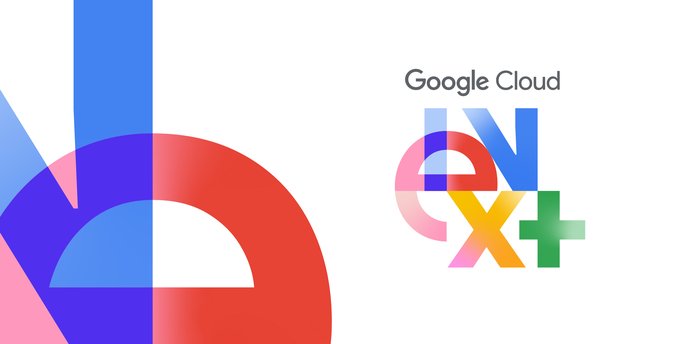Introducing Google Cloud Sentiment Analysis: A Foundation for a Successful COVID-19 Vaccination Strategy
Todd Schroeder
Director of Global Public Sector Digital Strategy, Google Cloud
As we approach the new year, the world awaits the promise of an end to the global pandemic. Science has never moved faster than in the race for COVID-19 vaccines, and now with several vaccine options in development, we face the next hurdle–rolling out a large-scale, rapid immunization initiative unlike anything we’ve seen before.
The challenges are three-fold. First is the ability to produce sufficient quantities of the vaccine; second is a distribution fraught with hurdles that include a two-series inoculation, complex cold-storage logistics, and hundreds of millions of individuals (in the US, alone) that need to receive the vaccine in a short time to stop the unchecked spread of the virus. And the third hurdle may be the greatest–getting individuals to agree to receive the vaccine.
Sentiment Analysis: An Essential Guidepost for Vaccine Distribution
Healthcare decisions are personal. The ability to assess constituent sentiment, within specific geographies or demographic communities, will be critical to executing vaccine distribution initiatives. For example, in preparing a distribution strategy, healthcare providers and local government health agencies require insight into general feelings about receiving a vaccination, including within specific demographic or geographic communities. Then, as the programs roll out, sentiment analysis can help to track changes in beliefs and behaviors, as well as the success of the vaccination initiative.
Traditionally, health departments at the state level conduct sentiment analysis for each specific program using polls and surveys before campaigns begin, and then revisit that intelligence only a few times afterwards. However, with the scale of the vaccine distribution program and the rise of digital feedback tools, healthcare providers and local government health agencies can benefit from far more immediate and deeper understandings of constituent concerns. That’s because constituents today engage with government organizations across a wide variety of communications platforms, including call centers, websites and apps, chatbots, advertising campaigns, social media, search, and news feeds. And this list continues to grow.
Google Cloud Sentiment Analysis builds on the marketing data warehouse concept, and helps ensure anyone with a browser can read and make decisions on the data, from communications teams, to data analysts and public policymakers. Government organizations can then direct marketing operations from this “single source of truth” to specific audiences, addressing concerns as they arise, and providing relevant and accurate information. Tools like BigTable and BigQuery transfer service work with many common media platforms and storage options. And with Google Cloud Natural Language API, government agencies can identify prevailing opinion (positive, neutral, negative), assess the magnitude of sentiment, and get updates as perception changes. This allows agencies to track these changes over time, and see changes related to the topics being discussed.
Speed, Security, and Scale
Speed is of the essence in crafting and executing a vaccine distribution strategy, and state agencies do not have the time, bandwidth, and resources for expensive and time-consuming rip-and-replace strategies. Google Cloud Sentiment Analysis meets government organizations where they are in their journeys, augmenting existing website analytics and placing actionable insight directly into the hands of key decision-makers. It moves data closer to those who need it to implement policy, and frees data scientists from endless report creation–allowing them to focus on high-value initiatives.
Google Cloud Sentiment Analysis is designed with the understanding that a government organization owns the relationship with the constituents it seeks to serve, and the government should own and control its data. Since the Google Cloud solution is deployed in an agency’s private GCP account – the agency will own the data and determine how to use it. And, because it’s built on top of native GCP services, the solutions scale to meet enterprise requirements.
Sentiment Analysis in Action
Google Cloud’s Sentiment Analysis solution builds on our strong foundation of projects supporting state and local health agencies during the COVID-19 pandemic. In this global pandemic, we’re helping people to stay safe, informed, and connected with authoritative information–as well as assisting public health efforts with our technology and tools that include:
A COVID-19 Open Data Repository – a complement to Data Commons – that provides a comprehensive, open-source resource of COVID-19 epidemiological data and related variables, such as economic indicators and population statistics from over 50 countries.
Community Mobility Reports that support public health management of COVID-19.
New Virtual Care features to make it easier for people to connect with virtual healthcare options, locally and nationally.
An Anxiety Assessment Tool that we partnered with the National Alliance on Mental Illness (NAMI) to create and launch.
A COVID-19 Search Trends Symptoms Dataset, which provides a dataset of search trends for over 400 symptoms, signs, and health conditions, for researchers to study the link between symptom-related searches and the spread of COVID-19.
A Rapid Response Virtual Agent that helps healthcare providers connect with their patients and share COVID-19-specific information quickly.
Sentiment analysis is just one tool in fighting the spread of COVID-19, and may prove to be one of the most critical in helping state and local governments with their vaccine distribution efforts at scale.



